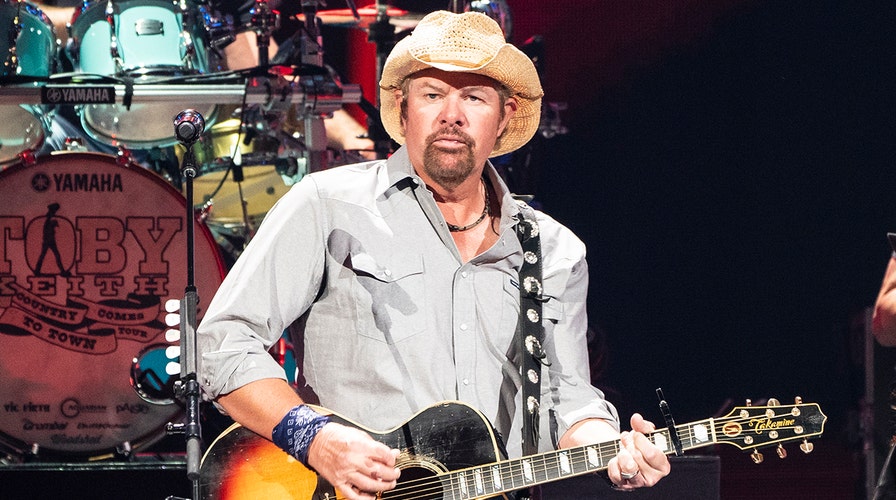Was Toby Keith racist? The question has sparked intense debate among fans and critics alike. As one of country music's most prominent figures, Toby Keith has built a career spanning decades, with hits that resonate with millions worldwide. However, recent controversies have cast a shadow over his legacy. This article delves into the allegations, providing a balanced analysis of the evidence and context surrounding these claims. By examining both sides of the argument, we aim to offer clarity and insight into this complex issue.
Country music fans have long celebrated Toby Keith for his charismatic performances and heartfelt lyrics. Yet, the accusations of racism have raised concerns about the values reflected in his music and public statements. In this article, we explore the origins of these allegations, the impact on his career, and how the broader music industry has responded. Our goal is to provide a comprehensive overview while encouraging thoughtful discussion about cultural sensitivity and accountability in entertainment.
As debates continue to unfold, it's crucial to examine the facts and separate them from speculation. By addressing key incidents, analyzing public reactions, and considering expert opinions, we aim to shed light on whether Toby Keith’s actions or words can be classified as racist. This investigation seeks to foster understanding and promote constructive dialogue, ensuring that all voices are heard in this important conversation.
Read also:Jennifer Kish Goggins Wife Exploring Her Life Influence And Contributions
Who is Toby Keith?
| Full Name | Toby Gene Keith |
|---|---|
| Birthdate | July 8, 1961 |
| Birthplace | Oklahoma City, Oklahoma, USA |
| Profession | Singer-Songwriter, Actor, Entrepreneur |
| Genre | Country, Rock |
Toby Gene Keith, born on July 8, 1961, in Oklahoma City, Oklahoma, is a towering figure in the world of country music. Known for his distinctive voice and energetic performances, Keith has released numerous chart-topping hits, including "How Do You Like Me Now?!" and "Courtesy of the Red, White & Blue (The Angry American)." Beyond music, he has ventured into acting, reality TV, and entrepreneurship, establishing himself as a multifaceted entertainer.
Keith’s journey to fame began in the early 1990s when he signed with Mercury Records Nashville. His debut single, "Should've Been a Cowboy," quickly climbed the charts, earning him widespread recognition. Over the years, he has earned multiple awards, including Grammy nominations and induction into the Nashville Songwriters Hall of Fame. Despite his success, controversy has occasionally surrounded his career, with some critics questioning his lyrics and public statements.
What is the Controversy Surrounding Toby Keith?
The allegations regarding Toby Keith’s alleged racism stem from specific incidents and lyrics in his songs. Critics point to certain song lyrics and public remarks as evidence of insensitivity toward racial issues. For instance, his 2002 hit "Courtesy of the Red, White & Blue" sparked debate due to its aggressive tone and perceived xenophobia. While supporters argue that the song reflects patriotism, detractors claim it perpetuates harmful stereotypes.
Additionally, Toby Keith’s public appearances and interviews have occasionally drawn scrutiny. Some observers argue that his comments and behavior reinforce racial biases, while others believe these interpretations are overly critical or taken out of context. Understanding the nuances of these claims requires a closer examination of the historical and cultural backdrop against which they emerged.
Was Toby Keith Racist in His Song Lyrics?
This question lies at the heart of the controversy. Critics argue that certain song lyrics reflect racial insensitivity, citing examples such as "Red Solo Cup," which some interpret as dismissive of cultural diversity. However, defenders of Toby Keith contend that these interpretations overlook the intended humor and lighthearted tone of the songs. The debate highlights the importance of context and intent when evaluating artistic expression.
How Have Fans Reacted to Allegations That Toby Keith Was Racist?
Fan reactions to the allegations have been mixed. Many loyal supporters dismiss the claims, emphasizing Toby Keith’s contributions to charitable causes and his advocacy for veterans. Others acknowledge the concerns but call for open dialogue about race relations in the music industry. Social media platforms have become battlegrounds for opposing viewpoints, with hashtags like #TobyKeithSupport trending during periods of heightened controversy.
Read also:Bernie Sanders Wife Net Worth 2024 A Comprehensive Guide To Jane Omeara Sanders Financial Standing
Why Does This Matter? Is Toby Keith Racist?
Addressing allegations of racism is essential for promoting inclusivity and understanding in the arts. If Toby Keith’s actions or words are deemed racist, it raises questions about accountability and representation within the entertainment industry. Conversely, if the claims are unfounded, it underscores the need for nuanced discussions about cultural sensitivity and free speech.
This section explores the broader implications of the controversy. By examining similar cases involving other artists, we can better understand the challenges faced by public figures navigating sensitive topics. Furthermore, we analyze how media coverage and public opinion shape perceptions of celebrities accused of racism.
What Can We Learn From the Debate Over Was Toby Keith Racist?
The debate surrounding Toby Keith’s alleged racism offers valuable lessons about communication and empathy. It highlights the dangers of making assumptions based on limited information and the importance of listening to diverse perspectives. As society becomes increasingly interconnected, fostering respectful conversations about race and identity becomes more critical than ever.
Can Toby Keith Redeem Himself if Was Toby Keith Racist?
Redemption and personal growth are possible, even in the face of controversy. If Toby Keith acknowledges valid concerns and takes meaningful steps to address them, he could rebuild trust with skeptics. This might involve collaborating with organizations focused on racial equality, participating in educational initiatives, or revisiting problematic content to provide clarification or updates.
Key Moments in Toby Keith's Career Related to the Question Was Toby Keith Racist
Several moments in Toby Keith’s career have contributed to the ongoing debate about racism. Below are notable examples:
- Release of "Courtesy of the Red, White & Blue" – Sparked discussions about patriotism versus xenophobia.
- Public statements during interviews – Raised questions about cultural sensitivity.
- Charitable work and community involvement – Highlighted positive contributions despite controversies.
Conclusion: Where Do We Go From Here?
The question "was Toby Keith racist" remains complex and multifaceted. While some evidence supports the allegations, others suggest alternative interpretations of his actions and words. Ultimately, resolving such debates requires empathy, critical thinking, and a commitment to understanding different viewpoints.
As fans and critics alike continue to grapple with these issues, it’s vital to approach the conversation with respect and openness. By learning from past controversies and promoting inclusivity, the music industry can pave the way for a more equitable future. Whether Toby Keith’s legacy will be defined by his successes or controversies remains to be seen, but one thing is certain: the dialogue sparked by this debate will continue to shape discussions about race and representation in entertainment.
Table of Contents
- Who is Toby Keith?
- What is the Controversy Surrounding Toby Keith?
- Was Toby Keith Racist in His Song Lyrics?
- How Have Fans Reacted to Allegations That Toby Keith Was Racist?
- Why Does This Matter? Is Toby Keith Racist?
- What Can We Learn From the Debate Over Was Toby Keith Racist?
- Can Toby Keith Redeem Himself if Was Toby Keith Racist?
- Key Moments in Toby Keith's Career Related to the Question Was Toby Keith Racist
- Conclusion: Where Do We Go From Here?


